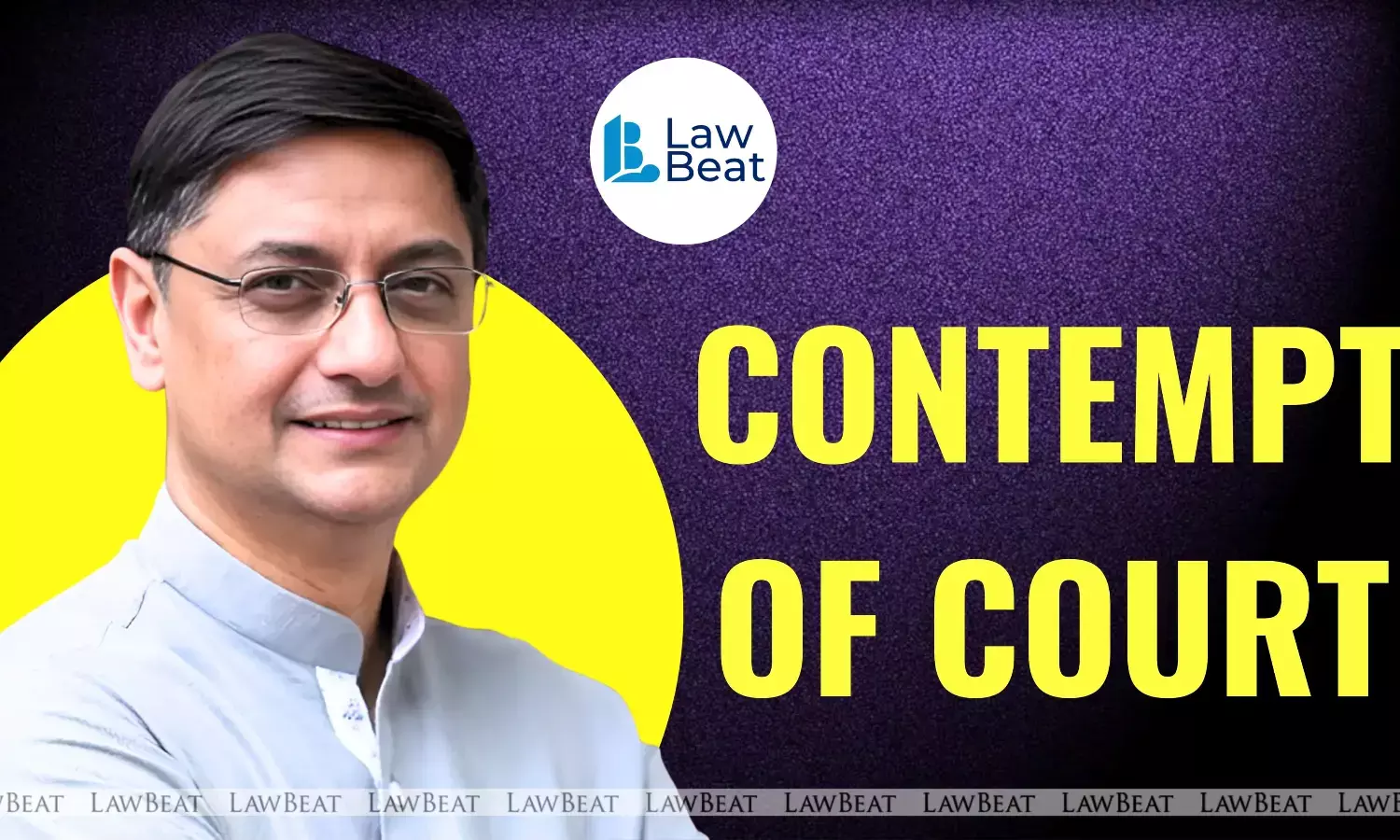Remarks on Judiciary: Two Lawyers Urge AG to Allow Criminal Contempt Against Sanjeev Sanyal

Two Supreme Court lawyers seek AG’s nod for contempt action against Sanjeev Sanyal, EAC-PM member
Two Supreme Court Advocates have written to Attorney General R. Venkataramani seeking his consent to initiate criminal contempt proceedings against Sanjeev Sanyal, Member of the Prime Minister’s Economic Advisory Council (EAC-PM), for his recent public remarks criticizing the judiciary and the legal profession.
In a detailed representation dated September 25, 2025, Advocates Rohit Pandey (former Honorary Secretary, Supreme Court Bar Association) and Ujjawal Gaur submitted that Sanyal’s statements amounted to a sweeping attack on the judicial system and crossed the permissible boundaries of fair criticism under Article 19(1)(a) of the Constitution.
The letter, addressed to the Attorney General, invokes Section 15 of the Contempt of Courts Act, 1971 read with the Supreme Court’s contempt rules, seeking approval to move the apex court for initiation of contempt proceedings.
Citing multiple remarks made by Sanyal at a recent public forum, the Advocates highlighted the following:
Sanyal described the judicial system as the “single biggest hurdle” to India becoming a “Viksit Bharat” and achieving rapid growth.
1. He mocked courtroom conventions such as addressing judges as “My Lord” and referring to petitions as “prayers,” saying, “You’ve got to be kidding me.”
2. He likened the judiciary to other public services, questioning the legitimacy of long court vacations with an analogy: “If doctors shut hospitals for vacations, would that be acceptable?”
3. He called mandatory pre-litigation mediation under the Commercial Courts Act, 2015 a “failed system,” blaming the legal profession for pushing it despite knowing it “adds six months, lawyers’ fees, and mediators’ charges.”
4. He described the legal profession as a “medieval guild with a caste system,” questioning the validity of senior advocates, advocates-on-record, and even the need for a law degree to argue in court.
5. He further alleged that the judiciary itself has a “caste system” between judges elevated from the Bar and those promoted from the Subordinate Judiciary.
The Advocates argued that while constructive criticism of judicial processes is permissible, branding the judiciary as the primary obstacle to national progress and belittling the Bar as a “medieval guild” undermines the dignity of both institutions.
They emphasized that lawyers, as officers of the court, form an inseparable part of the justice delivery system, and such ridicule damages the crucial Bench-Bar relationship. More significantly, they argued, given Sanyal’s high-ranking position as a government advisor, his words carry disproportionate influence and risk being perceived as reflecting institutional opinion.
“This request is not directed against Mr. Sanyal personally,” the letter clarified, acknowledging his contributions as an economist. However, it added that his “lack of appreciation of the judiciary’s constitutional role and the professional responsibilities of lawyers, coupled with the derisive tone of his repeated statements, if left unchecked, may weaken one of the last institutions in which the people of India continue to repose trust.”
The Advocates urged the Attorney General to grant consent, stressing that action was required not to suppress debate but to affirm that public confidence in the judiciary cannot be undermined by sweeping and disparaging remarks from high public functionaries.
Earlier, Advocate Shashi Ranjan Kumar Singh had also formally requested the AG to allow criminal contempt proceedings against Sanjeev Sanyal over his recent remarks on the judiciary.
In a related news, Senior Advocate Vikas Pahwa has written a strongly worded letter to Sanjeev Sanyal, Member of the Economic Advisory Council to the Prime Minister (EAC-PM), taking exception to his recent public remarks describing the judiciary as the “biggest hurdle” in India’s aspiration to become Viksit Bharat. Pahwa said such sweeping criticism risks undermining the very institution that is “the backbone of our Constitutional framework.” While acknowledging the importance of reforms and efficiency, he underlined that judicial independence and constitutional oversight cannot be sacrificed for speed alone.
In the detailed letter dated September 23, 2025, Pahwa wrote, “The judiciary does not obstruct progress, it ensures development within the framework of Constitutional values, liberty and fairness. To call it the biggest hurdle is extremely unfortunate.”
He added that delays in justice are often the result of systemic shortages of judges and inadequate infrastructure, failures that require executive support, not judicial blame. “A nation’s progress cannot be measured merely by the speed of contracts or clearances; it must be judged by whether liberty, justice and equality are preserved along the way,” he said.
Notably, earlier, in May, Sanjeev Sanyal had also advocated for reforms in the judiciary and the collegium system. He had stated “We will have to change the justice system. Think about this 'tareekh pe tareekh' system. What is this? We say this is from the colonial time. For seventy-five years we have the same system… The High Courts and the Supreme Court take leave in summer and then take leave again in Dussehra. What is this system? They work for a few hours. All these old systems will have to be changed, and modernise it. The government can contribute to this to some extent. But in the end, the justice system will have to do it on its own”.
Sanyal had criticized the existing system, including the practice of judges taking extended summer and Dussehra vacations, which he deemed inefficient. He had highlighted the need for change, suggesting that outdated practices should be replaced with more efficient and contemporary approaches.
Sanyal had also called for a revamp of the collegium system, which currently enables apex court judges to appoint and transfer judges in the High Courts and the Supreme Court. He had expressed concerns about the lack of merit-based appointments, suggesting that the current system perpetuates nepotism and favoritism. Drawing parallels with his own role as an advisor to the Prime Minister, Sanyal had emphasized the importance of meritocracy in judicial appointments to ensure fairness and competence.
Letter Date: September 25, 2025
